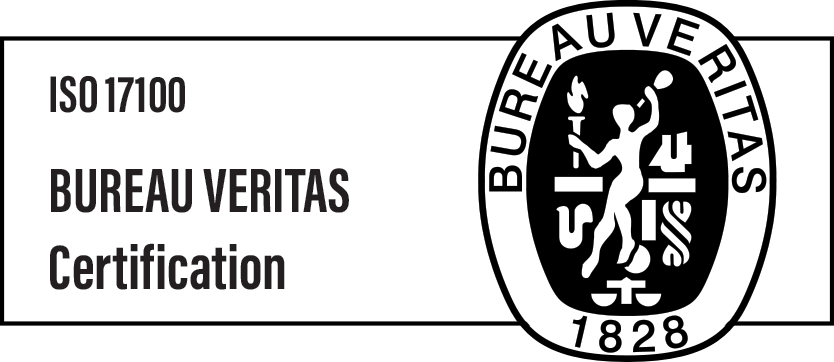Introduction
In the digital age, where information flows rapidly and content is consumed at an unprecedented pace, the vital role of proofreaders in preserving quality amidst digital transformation cannot be overstated. As technology continues to reshape the landscape of publishing, the need for accuracy, clarity, and professionalism in written content remains paramount. However, the speed and efficiency afforded by digital tools have led some to question the necessity of traditional editorial processes, including proofreading.
Amidst this backdrop, the recent decision by Gazeta Wyborcza to dismiss all proofreaders serves as a sobering reminder of the ongoing challenges faced by the publishing industry. The shockwave generated by this decision reverberates throughout the industry, prompting reflection on the importance of maintaining editorial standards in an era dominated by digital innovation.
The Evolving Landscape of Publishing
The advent of the internet and digital technologies has ushered in a new era of publishing, marked by rapid dissemination of information and the democratization of content creation. With the click of a button, news articles, blog posts, and social media updates can reach audiences across the globe in a matter of seconds. In this fast-paced environment, publishers and media organizations are under increasing pressure to produce content quickly and efficiently to keep pace with demand.
However, the pursuit of speed and efficiency has brought about significant changes in publishing practices. Traditional editorial processes, which once placed a strong emphasis on thorough proofreading and meticulous attention to detail, are now being challenged by the need for immediacy. In the race to publish content first, some organizations may prioritize speed over accuracy, sacrificing quality in the process.

Understanding the Role of Proofreaders
At the heart of the editorial process lies the critical role of proofreaders. Tasked with scrutinizing text for errors, inconsistencies, and stylistic issues, proofreaders serve as guardians of quality in written communication. Their meticulous approach ensures that content is free from grammatical errors, spelling mistakes, and typographical errors, thereby enhancing readability and comprehension.
Beyond mere error correction, proofreaders also play a pivotal role in maintaining consistency, clarity, and coherence in written content. They ensure that the tone, style, and formatting are consistent throughout the text, enhancing the overall professionalism and credibility of the material. Additionally, proofreaders may offer valuable insights and suggestions for improvement, contributing to the refinement and polish of the final product.
Gazeta Wyborcza’s Decision: A Cautionary Tale
In a shocking turn of events, Gazeta Wyborcza, a prominent Polish newspaper, made headlines with its decision to dismiss all proofreaders from its editorial team. This abrupt move sent shockwaves through the publishing industry, sparking debates about the importance of editorial oversight in the digital age. While the newspaper cited cost-cutting measures and the adoption of automated proofreading tools as reasons for the decision, many questioned the potential impact on the quality and integrity of the publication.
Gazeta Wyborcza’s decision serves as a cautionary tale about the potential risks of undervaluing the role of proofreaders in the editorial process. As media organizations increasingly prioritize speed and efficiency over quality, there is a real danger of compromising the accuracy and credibility of journalistic content. Without the critical eye of proofreaders to identify errors and inconsistencies, the integrity of the publication may be called into question, eroding reader trust and damaging the brand’s reputation.
This decision also raises broader questions about the future of editorial oversight in the digital era. While technological advancements have streamlined production processes and increased efficiency, they cannot fully replicate the nuanced understanding and contextual insight that human proofreaders bring to the table. As media organizations grapple with the complexities of digital transformation, they must carefully consider the long-term implications of sacrificing editorial quality for short-term gains.

The Value of Human Touch in the Digital Era
In an age dominated by algorithms and automation, the human touch provided by proofreaders remains invaluable. While automated proofreading tools can catch certain errors, they lack the ability to interpret context, discern tone, and make nuanced editorial judgments. Human proofreaders bring a level of expertise, experience, and intuition to the table that cannot be replicated by machines, ensuring that content is not only error-free but also engaging, coherent, and culturally sensitive.
Moreover, the role of proofreaders extends beyond mere error detection. They serve as guardians of quality in written communication, upholding editorial standards and preserving the integrity of the publication. By meticulously reviewing text for accuracy, clarity, and coherence, proofreaders play a crucial role in ensuring that content meets the highest standards of excellence. In an era where misinformation and fake news abound, the work of proofreaders is more important than ever in upholding the integrity and trustworthiness of written content.

Upholding Quality Amidst Digital Transformation
Despite the challenges posed by digital transformation, there are strategies that media organizations and publishing houses can employ to uphold quality in written content. One approach is to integrate proofreading into digital publishing workflows seamlessly. By incorporating proofreading checkpoints at key stages of the production process, publishers can ensure that content undergoes thorough review and scrutiny before publication. Additionally, investing in training and development programs for staff writers and editors can enhance their proofreading skills and awareness of editorial best practices, thereby improving the overall quality of content.
Furthermore, it is essential for media organizations to prioritize editorial excellence despite the pressures of the digital age. While speed and efficiency are important, they should not come at the expense of quality and integrity. By fostering a culture of editorial excellence and emphasizing the importance of proofreading in the publishing process, organizations can demonstrate their commitment to upholding the highest standards of professionalism and credibility.
Case studies provide compelling evidence of the positive impact of effective proofreading on content quality and reader satisfaction. By investing in dedicated proofreading teams or partnering with external proofreading services, media organizations can ensure that their content is error-free, coherent, and engaging. Ultimately, the success of a publication hinges on its ability to deliver accurate, credible, and compelling content to its audience, and proofreaders play a vital role in achieving this goal.

Conclusion
In conclusion, the work of proofreaders is indispensable in upholding the standards of accuracy, clarity, and professionalism in written content. From detecting errors and inconsistencies to preserving credibility and trust, proofreaders play a vital role in ensuring that published material meets the highest standards of excellence. As Gazeta Wyborcza’s decision highlights, the importance of proofreading cannot be overstated, and its value must be recognized and preserved in an increasingly digitalized and fast-paced media landscape. By prioritizing editorial excellence and investing in the expertise of proofreaders, media organizations can navigate the challenges of digital transformation while maintaining the integrity and quality of their content.


